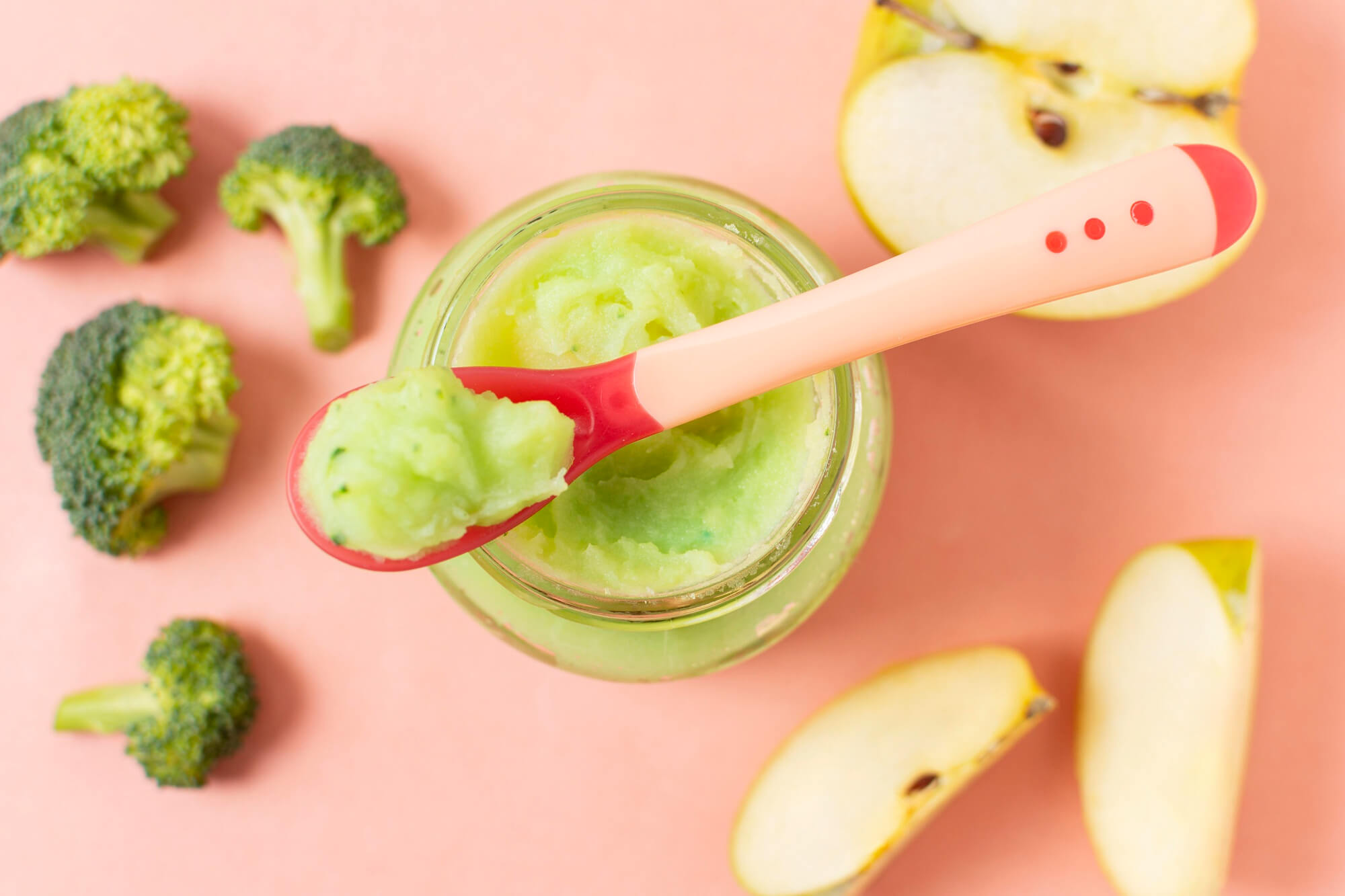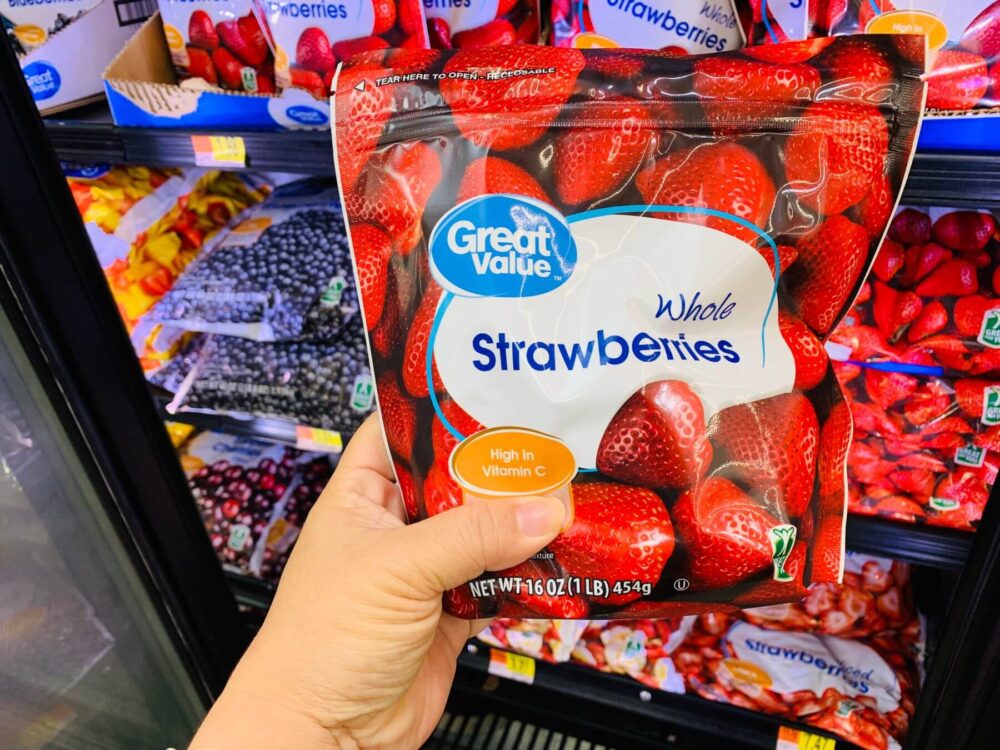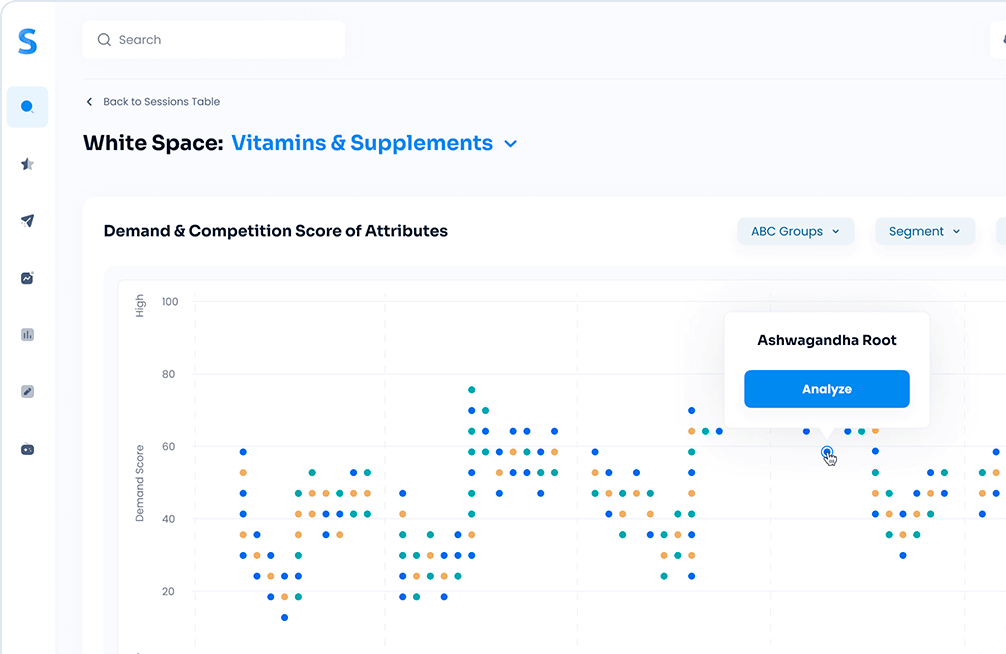The baby food market is undergoing a transformation, and it’s not just about pureed peas and carrots anymore. As millennial parents become the primary demographic for this industry, their preferences are reshaping what baby food looks like—both inside and out. Millennials are not just consumers; they are informed consumers. They research, they compare, and they look for the best options for their children. This shift is not just a trend. Understanding what millennial parents are seeking in baby food products is essential for any brand looking to make a meaningful impact in this evolving landscape.
The Millennial Parent Profile
Building on the notion that millennial parents are informed consumers, let’s delve into the specific characteristics that set them apart. Millennials are the first generation of digital natives, and this tech-savviness extends into every aspect of their lives, including parenting. They’re not just walking down the grocery aisles; they’re scrolling through reviews, reading blogs, and watching unboxing videos to make the best choices for their little ones.

Nutrition is non-negotiable. According to a study by the Organic Trade Association, 25% of all millennials are parents, and of those, a staggering 52% opt for organic baby food over conventional options. They’re scrutinizing labels for artificial preservatives, added sugars, and any ingredient that sounds more like a chemical equation than food.
Convenience without compromise is another mantra for this demographic. Millennial parents are often juggling careers, social lives, and family. They’re looking for pre-packaged, single-serve options, but not at the expense of quality. A Nielsen report highlighted that 41% of millennial parents are willing to pay a premium for a product that aligns with their values.
Lastly, transparency is key. Millennials have grown up in an era where information is just a click away. They expect the same from the brands they engage with. A 2016 study found that 94% of consumers are likely to be loyal to a brand that offers complete transparency, and this number is even higher among millennials.
So, what does this mean for the baby food market? It’s simple: the old playbook won’t work. Millennial parents are a new breed of consumers who demand more. And as we’ll see, meeting these demands is not just good business sense; it’s a necessity.
Key Factors Millennial Parents Consider
Nutritional Value
As we’ve established, millennial parents are a unique consumer group with specific demands. One of the most critical factors they consider is the nutritional value of the baby food they purchase. This isn’t just about avoiding harmful ingredients; it’s about actively seeking foods that nourish their children’s growing bodies and minds.
According to the American Academy of Pediatrics, the first 1,000 days of a child’s life are crucial for long-term health, and proper nutrition plays a pivotal role. Millennial parents are acutely aware of this. They’re not just looking for food; they’re looking for optimal nutrition. Ingredients like quinoa, chia seeds, and kale are making their way into baby food jars, not just because they’re trendy, but because they offer a rich profile of essential nutrients.
Data from various sources, including the World Health Organization, indicate a growing trend toward incorporating superfoods into baby diets. These are foods rich in antioxidants, good fats, and essential vitamins and minerals. The focus is shifting from ‘filling’ to ‘fulfilling,’ where the goal is not just to satiate hunger but to provide a balanced meal.
Simporter’s data further corroborates this trend. According to their research, ‘Nutritious Food’ ranks as the third-highest consumer need in the Baby meals market in the U.S. This is not a passing fad; it’s a significant shift in consumer behavior that’s likely to continue growing.
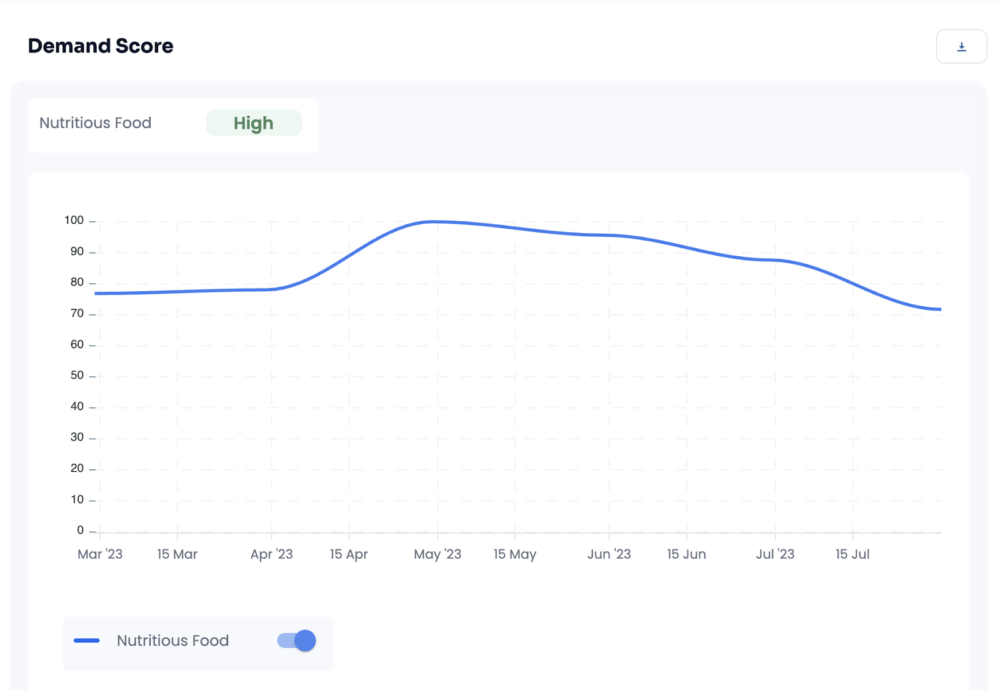
So, if you’re in the baby food business, take note. Millennial parents are reading those ingredient lists, and they’re well-informed about what each ingredient brings to the table—literally. Nutrition is not just a selling point; it’s a cornerstone of brand loyalty among this demographic.
Organic and Natural Ingredients
Building on the importance of nutrition, millennial parents are increasingly leaning towards organic and natural ingredients. It’s not just about what the food contains, but also how it’s produced. Organic farming practices, which avoid synthetic pesticides and fertilizers, are often seen as safer and more sustainable, aligning well with millennial values.
A study by the Organic Trade Association found that organic food sales hit a record $55.1 billion in 2019, with baby food being one of the fastest-growing categories. Ingredients like organic fruits, vegetables, and even organic meats are becoming staples in baby food products. The benefits are manifold: not only are these foods free from harmful chemicals, but they also often contain more beneficial nutrients like antioxidants compared to their non-organic counterparts.
The mantra is clear: nothing artificial. Millennial parents are scrutinizing labels for artificial flavors, colors, and preservatives. According to Simporter data, ‘Nothing Artificial’ ranks as the fifth-highest consumer need in the Baby meals market in the U.S. This is a clear indicator that parents are not just looking for food; they’re looking for food they can trust.

The shift towards organic and natural ingredients is not a mere preference; it’s a conscious choice driven by a blend of health concerns and ethical considerations. Brands that recognize this and adapt their product lines accordingly are not just meeting consumer demand—they’re also building trust. In the baby food market, trust is nurtured one organic ingredient at a time.
Convenience and Packaging
While nutrition and ingredient quality are paramount, millennial parents are also practical. They’re often juggling multiple roles—parent, employee, partner—and convenience is not just a luxury; it’s a necessity. This need for convenience extends to baby food, influencing how it’s packaged what parents buy.
The rise of pouches in the baby food market is a testament to this trend. According to a report by Grand View Research, the global baby food pouches market size was valued at $2.67 billion in 2020 and is expected to grow significantly. Pouches are not just easy to use but also mess-free, aligning perfectly with the needs of busy parents. Simporter’s data echoes this sentiment, ranking ‘Mess-Free’ as the highest consumer need in the Baby meals market in the U.S.
But it’s not just about mess-free options. Ease of preparation is another factor that millennial parents consider. Products that can be quickly prepared without compromising on quality are gaining traction. ‘Easy To Prepare’ ranks as the sixth-highest consumer need, according to Simporter.
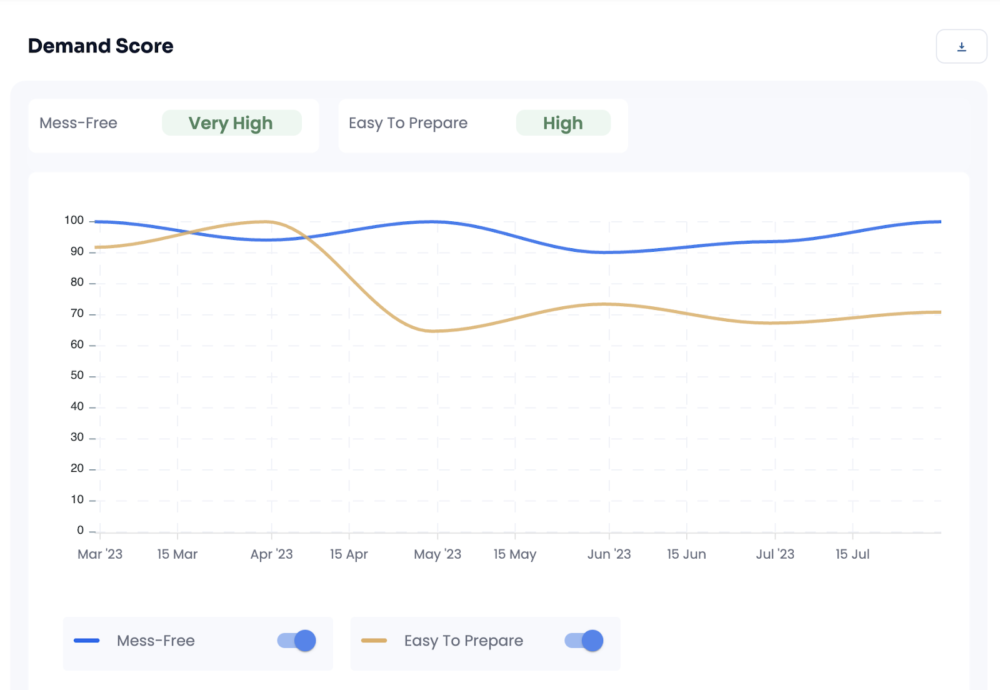
In essence, packaging is no longer just a vessel to hold the product; it’s an extension of the product itself. Brands that invest in innovative, convenient, and sustainable packaging are not just meeting a market demand; they’re exceeding it. In a market driven by informed choices, exceeding expectations is how brands differentiate themselves. Convenience, in this context, is not an afterthought; it’s an integral part of the product experience, one that millennial parents are willing to pay a premium for.
The Role of Social Media and Online Reviews

In the age of information, millennial parents are turning to a trusted source to make their purchasing decisions: each other. Social proof is the new currency, and online reviews, Instagram mentions, and even TikTok unboxings are influencing what ends up in the shopping cart. According to a study by the Pew Research Center, 40% of adults aged 30 to 49 say they always or almost always read online reviews when buying something for the first time. This number is even higher among millennial parents.
Platforms like Instagram are not just for sharing cute baby photos; they’re also a hub for product recommendations. Parents are following influencers who align with their parenting philosophies, whether that’s organic living, sustainability, or convenience. These digital endorsements often carry as much weight as personal recommendations from friends and family.
Simporter captures Instagram mentions, eCommerce reviews, and other forms of social proof to identify trending products in the baby food market. This data-driven approach offers valuable insights into what millennial parents are actually buying, not just browsing.
The takeaway is clear: online opinions matter. Brands that actively engage with their online community, encourage reviews, and maintain transparency are more likely to win the trust of millennial parents. In a market where trust is nurtured one organic ingredient at a time, a positive online review can be the tipping point that converts a browser into a loyal customer. So, if you’re looking to make a mark in this evolving landscape, don’t underestimate the power of the ‘share’ button.
Emerging Trends in Baby Food Products

As we navigate through the intricacies of millennial parenting and consumer behavior, it’s essential to look ahead at what’s next. The baby food market is not static; it’s dynamic and ever-evolving, driven by both technological advances and shifting consumer needs.
One of the most exciting trends is the rise of subscription services. Brands are offering curated, monthly deliveries of baby food, tailored to the child’s age, developmental stage, and even flavor preferences. According to a report by McKinsey, the subscription e-commerce market has grown by more than 100% percent a year over the past five years. Parents are subscribing not just for the convenience but also for the personalized experience.
Speaking of personalization, customized baby food is the next frontier. Companies are now offering services where parents can customize meals based on their baby’s nutritional needs, allergies, and even taste preferences. Data from Global Market Insights suggests that the personalized nutrition market could exceed $10 billion by 2026, and baby food is poised to be a significant part of that.
Fortified foods are also gaining traction, with ingredients like DHA for brain development and probiotics for gut health becoming increasingly common. These are not just marketing buzzwords; they’re backed by scientific research indicating real benefits for growing babies.
In summary, the baby food market is ripe for innovation, and millennial parents are here for it. Whether it’s the convenience of a subscription or the allure of a customized meal plan, the future looks not just nutritious but also delicious.
Implications for the Baby Food Industry

As we’ve journeyed through the evolving landscape of the baby food market, one thing is abundantly clear: millennial parents are setting a new standard for what baby food should be. This is not a consumer group that can be won over by flashy marketing alone; they demand substance, both in the product and the brand behind it.
So, what does this mean for the baby food industry? For starters, it’s time to rethink the product development pipeline. Innovation is not optional; it’s a requirement. Whether it’s incorporating superfoods for added nutritional value or developing eco-friendly packaging that’s also convenient, the focus should be on meeting and exceeding the high expectations set by millennial parents.
Transparency is another non-negotiable. From ingredient sourcing to production processes, brands must be willing to pull back the curtain and reveal what goes into making their products. This level of openness not only builds trust but also fosters brand loyalty.
Engagement is key. The millennial parent community is vocal and influential. Brands should actively engage with them through social media, encourage user-generated content, and even co-create products based on consumer feedback.
Lastly, personalization will be a game-changer. As technology advances, the opportunity for creating customized nutrition plans for babies will become more feasible and should be a focal point for future development.
In essence, the baby food industry is at a pivotal juncture. The choices made today will not just impact the next quarterly report; they will shape the future of the industry. And if there’s one thing we’ve learned, it’s that millennial parents are not just consumers; they’re partners in this journey.
Conclusion
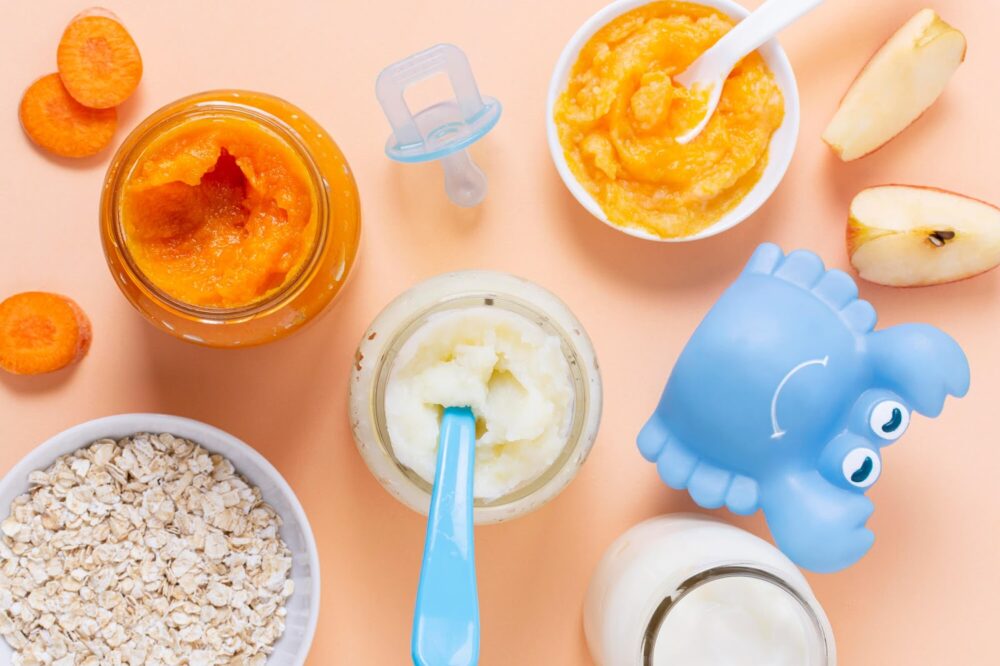
As we wrap up this deep dive into the baby food market, the message is clear: millennial parents are a force to be reckoned with. They’re informed, engaged, and have a set of expectations that go beyond what previous generations might have considered. From a keen focus on nutrition and organic ingredients to a demand for convenience without compromise, they’re reshaping the industry one baby spoon at a time.
Understanding this demographic is not just beneficial; it’s crucial for survival in an increasingly competitive market. Brands that innovate, engage, and most importantly, listen to what millennial parents want are the ones that will thrive. The future of baby food is not just about feeding; it’s about nourishing a new generation in every sense of the word.
So, whether you’re a product developer, marketer, or a parent looking to understand the trends, remember: the choices made today will set the stage for what the baby food aisle will look like tomorrow. And if millennial parents have anything to say about it, that future looks not just promising but also incredibly nutritious.
